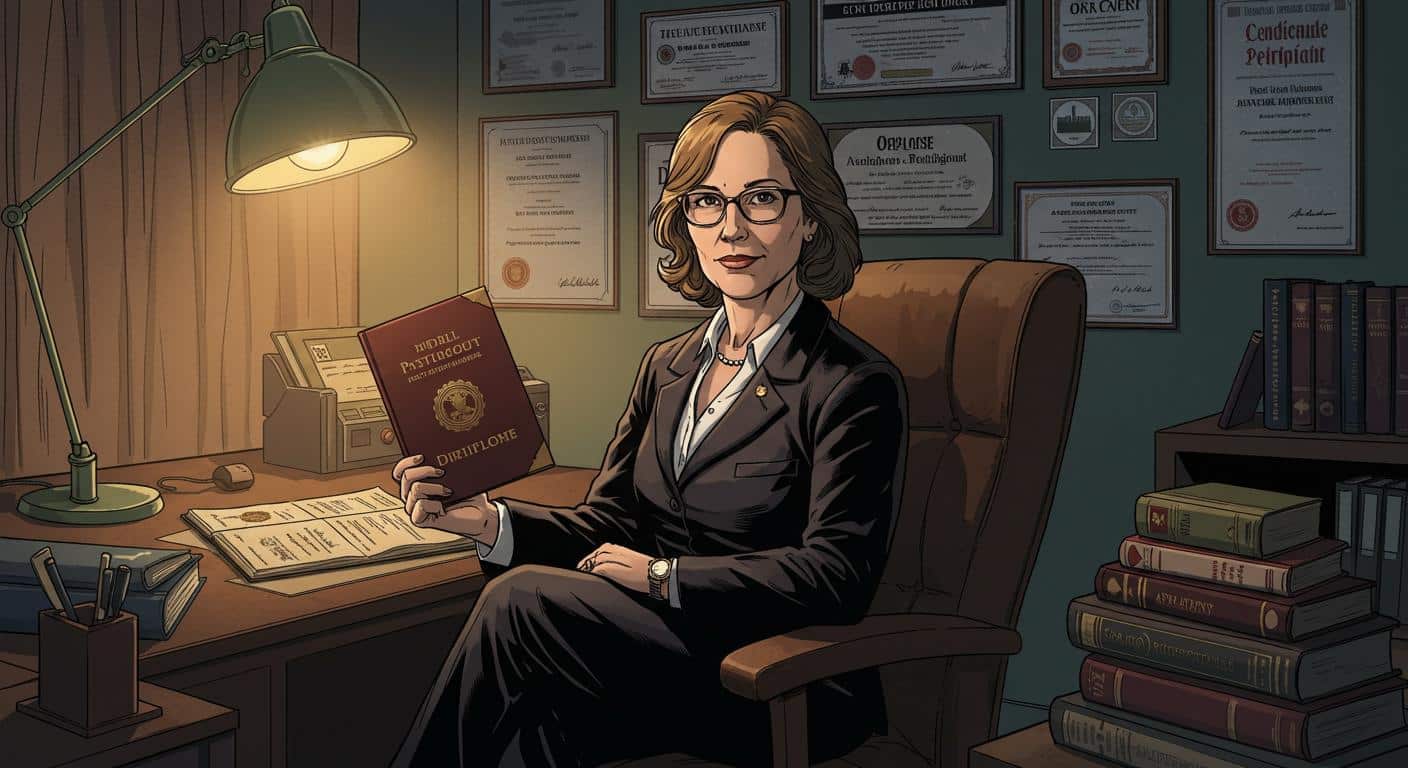The British National Health Service, largely trusted and famously overstretched, has hosted its fair share of improbable characters. Still, one doubts anyone anticipated Zholia Alemi—a woman who spent over two decades impersonating a qualified psychiatrist—would become something of an accidental legend in the annals of brazen fakery. As reported by Wales Online, Alemi claimed more than £1.3 million across twenty years, practiced across all four nations of the UK, and offered psychiatry expertise to hundreds, all while her most convincing credential was an evidently creative approach to Microsoft Word.
A Long-Form Improvisation
The details are almost operatic in their audacity: born in Iran and once a student at the University of Auckland, Alemi did not actually complete her degree but instead forged a diploma, stitched together a letter of verification, and even threw in fabricated hospital references sourced, it turns out, from a hospital that was entirely fictional. By 1995 she had convinced the UK’s General Medical Council (GMC) of her bona fides—an achievement suggesting either high-level document craft or worrying lapses in verification, depending on one’s faith in regulatory oversight.
According to court records cited in Wales Online, Alemi’s employment environment was as fluid as her backstory: she moved frequently, never staying long enough for anyone to get suspicious. (Was it wanderlust or simply good tactics to dodge attentive colleagues?) She eventually attained consultant status in 2003, having seemingly cleared various professional assessments—a fact that raises new questions about what these evaluations actually assess.
Earlier in the report, it’s mentioned that by 2012 she was even operating as a Section 12 practitioner, authorized to section patients. One imagines the job interview for this role was less about credentials and more about confident nodding.
The House of Cards Topples
Despite her impressive longevity, Alemi’s story eventually collapsed under the weight of its own fiction. Wales Online highlights how the first cracks formed not through official investigation, but after a sharp-eyed local reporter, Phil Coleman of Cumbrian Newspapers, began poking into her academic record following her 2018 conviction on separate fraud charges. It speaks volumes that journalistic curiosity did more to unravel this tale than years of institutional process.
Once the unqualified nature of her background was truly unearthed, an international investigation exposed everything from forged credentials to non-existent hospitals she’d used as references, as detailed in Wales Online. Properties across England and Northern Ireland were searched; fabricated certificates were confiscated; the NHS was left holding the psychiatric equivalent of a rubber chicken.
Wales Online further notes that Alemi was ultimately convicted for a “string of frauds,” including the remarkable side quest of attempting to manipulate an elderly patient’s will and powers of attorney. At sentencing, she was told to not only serve seven years but also pay back over £400,000 to the NHS or risk additional jail time. For those counting, that still leaves almost a million pounds unaccounted for—easily enough to fund several more theoretical medical degrees.
Success Measured in Stamina
What stands out is not simply that Alemi got away with this, but that she managed it for such an extended period, traversing England, Scotland, Wales, and Northern Ireland with all the geographic ambition of an actual consultant. Wales Online also notes she changed jobs “more or less continuously,” perhaps intuitively aware that in matters of fraud, tenure is rarely your friend.
Of course, with two decades of patient interaction based solely on forged paperwork, the safety implications are difficult to overstate. Adrian Foster of the Crown Prosecution Service observed, as quoted in Wales Online, that Alemi “had little regard for patient welfare” and that “hundreds of patients” were likely treated by her. It’s a chilling line—the kind of thing that might have once seemed possible only on television. (Granted, even British medical dramas might have found this a bit much.)
Reflections from the File Drawer
There is a kind of strange, cautious admiration for the persistence—twenty years is a remarkable commitment to character. What’s less amusing is the system that made it possible. As highlighted throughout Wales Online’s coverage, checks and balances that should ensure only the qualified treat vulnerable patients were upstaged by a determined forger and a busy bureaucracy. Was it blind faith in paperwork? Reluctance to check an international degree a little too closely? Or was Alemi’s determination, in the end, simply the squeaky wheel that never squeaked?
The sheer oddity of this case lies in its duration. Most imposters, scam artists, and resume embellishers are found out quickly, or at least self-destruct before the anniversary cake. Alemi managed to outlast not just colleagues, but system-wide safeguards and—until almost the very end—a basic Google search.
Among the many “stranger than fiction” stories to land in the archive, this one leaves us with a lingering question: for every Alemi who’s eventually discovered, how many more are still out there, blending in with their peers, waving forged diplomas, quietly planning their next move? There’s something to be said for investing a little extra time in reference calls—if only to ensure your local psychiatrist’s alma mater has ever appeared on a map.







